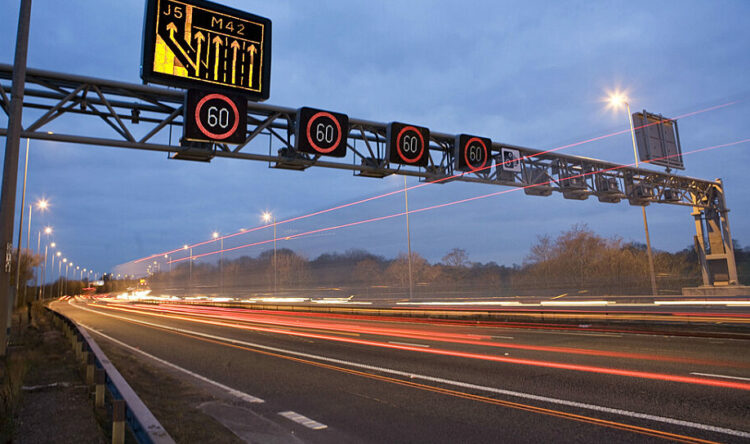Charged Yet Chilled
How electric cars can transform the driving experience
By Rob Cooling,
I’ll begin with my personal feelings on how switching to an EV (electric vehicle) has influenced my driving style and experience. I cannot begin to understate the value of changing to electric on my enjoyment of driving, I cannot empathise enough how much happier I am driving electric and how frustrated I am that I spent 20 years prior to electric in manual ICE (internal combustion engine) cars. I would happily pay more to drive an EV because it is a superior product yet the joyous truth for myself is that the running cost savings are so significant it is actually cheaper than my previous cars. Never before have I gained such enthusiasm and enjoyment from cars but EV’s and the potential they represent changed that for me. And I’m far from alone.
I’ve talked to so many EV owners in so many contexts and repeatedly end up having the same passionate conversation that revolves around how inspiring our cars are, it’s remarkable how just changing the method of propulsion can trigger such enthusiasm. Maybe it’s because it highlights how short changed we were beforehand with our 19th century patched up combustion engine technology, it takes exposure to the contrast to realise what was wrong with our old cars. Despite their short term technological issues with range and infrastructure (same problems early ICE cars had) EV drivers tend to be hardcore dedicated to their vehicles and often point out how much happier and more relaxed they feel. The few I’ve noticed on forums who are going back to ICE cars report reluctantly giving up their EV as the range issues have caused them difficulties, but the emphasis is on this being a short term withdrawal from EVs until the 250+ mile range becomes standard which will happen within the next few years. I’ve yet to meet anyone who has switched to an EV and actively hates how they drive. Don’t get me wrong because I understand an EV is not for everyone. Some people get passion and enjoyment from the sound, feeling and gears of a traditional car – but not me.
So how could an EV affect how you drive? I feel much more contented and less stressed in my Leaf and my fellow EV drivers tend to report the same thing. Research this year conducted by the University of York on taxi drivers using EV taxis versus diesel taxis concluded that drivers had a less variable heart rate, were calmer and the brain was in a more restful state of mind correlated with higher levels of concentration and active thought processes. Basically less angry and distracted whilst more focused on driving. Another study by Go Ultra Low in 2015 suggested the same results and 70% of surveyed drivers believe the quieter cabin and smoother sensation reduces stress on a commute, it is simply more peaceful and pleasant. A better working environment equates to benefits in health and mental wellbeing. It’s just a nicer ambience to be in, especially if you spend a lot of time in your car. Even if an EV does cost more it’s worth paying more for.
An EV also has a reward system built into it’s core, due to the technological limitations of the early EV’s range is a big deal. So EV dashboards are designed to make you conscious of your range and how your driving affects this, if you drive smoothly in a calm and well planned manner you are directly rewarded with a higher range. If you drive aggressively you will be instantly penalised as the car will punish you by displaying the direct effect this has on your cars efficiency and range. I’ve achieved as high as 5 miles per kWh, so that’s 5 miles for 12p. It’s quite addictive. Even the new models which can exceed 300+ miles still have this concept built into them, encouraging the driver to maximise their reward by driving peacefully and skilfully. There are even league tables you can take part in.
Of course although EV’s encourage the driver to be calm in their style the cars are also very energetic, the instantaneous power release makes everything effortless. Going back to an ICE where the car is constantly working hard to climb hills or pick up speed contrasts against the ease and grace of electric. It’s not so much about how quickly an EV gets from 0-60mph but the sensation of actually getting there. An ICE fights to 60mph whereas an EV soars towards 60mph, spend a year in an EV and then go back and this might make some sense. It’s just calmer. But EV’s are very quick if they want to be, it costs £3 million to buy an ICE car (Bugatti Chiron) capable of 0-60mph in under 3 seconds. An EV (Tesla Roadster) can do it in under 2 seconds and for 6% of the cost at £200,000, plus ironically the EV has a range of 620 miles while the ICE only 286 miles. So much for EV range anxiety. Back to reality (and affordability!) and a Nissan Leaf has a 0-60mph of about 7.5 seconds although due to the way an EV moves with uninterrupted acceleration (no gear changes) it feels quicker.
No one is claiming an EV is going to magically transform an angry driver into a calm one, it can’t fix bad attitudes and aggressive behaviour. But moving into a more relaxing and rewarding environment is bound to have at least a subtle effect on how we feel and we know that how we feel affects how we drive.








